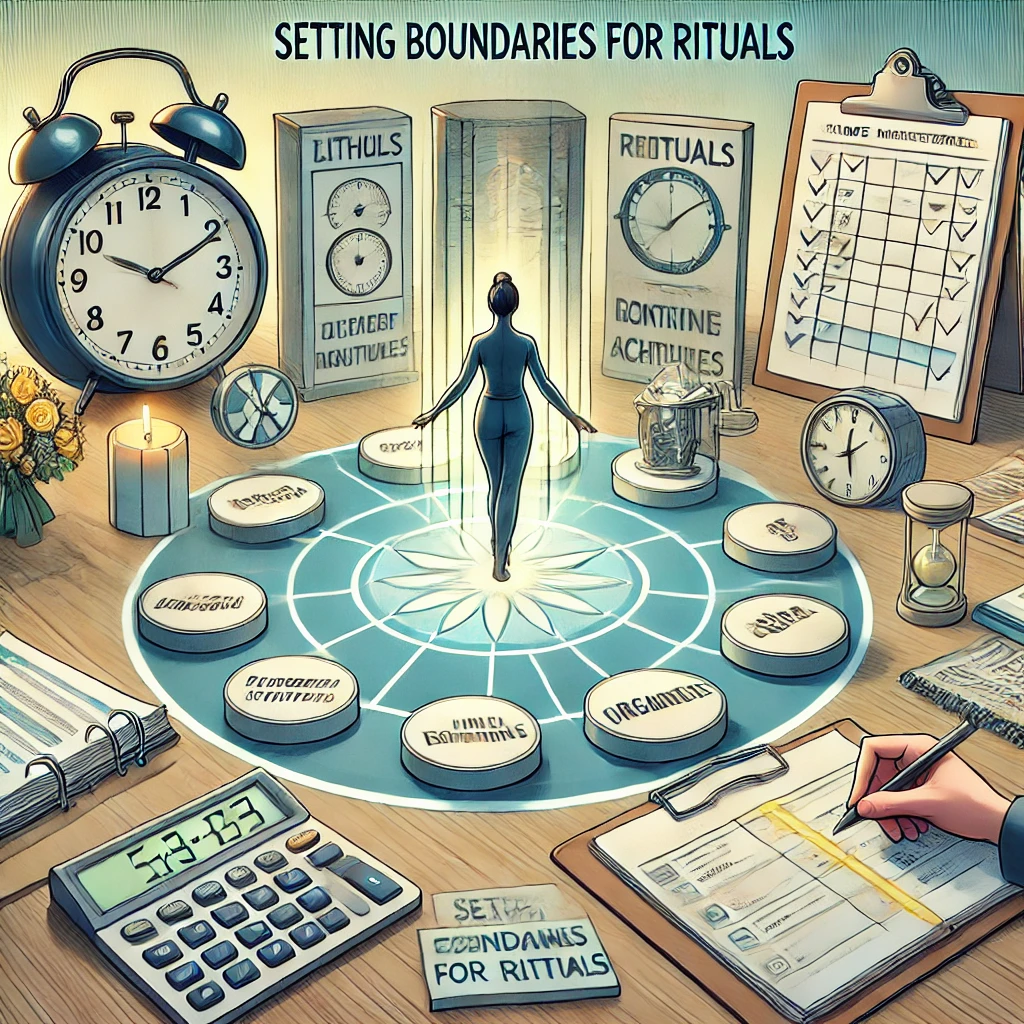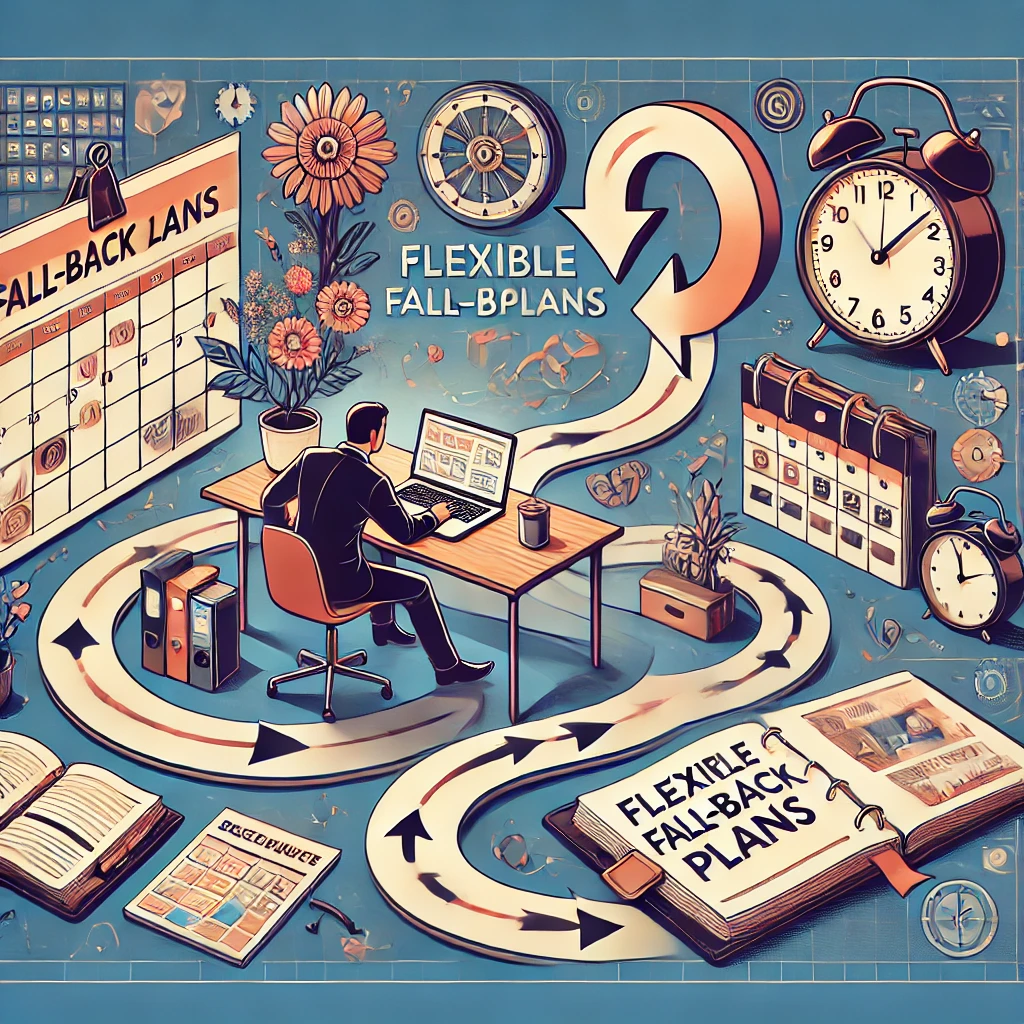Obsessive-Compulsive Disorder (OCD) makes daily life hard. It brings unwanted thoughts and rituals that take up a lot of time. Many people exploring OCD and time management techniques struggle because obsessive compulsive disorder directly affects their ability to organize daily life. Managing time effectively the right way is key to being more productive and feeling less anxiety. By understanding OCD, you can get better at organizing your day and feel less anxious, improving daily functioning.
It often brings persistent thoughts, compulsions, and rituals that consume valuable time. Many people struggling with generalized anxiety disorder or depression also find it difficult to manage daily routines. Understanding OCD and individual differences in coping with stress is crucial to improving time management and reducing anxiety.

Folks with OCD often focus on rituals like checking, cleaning, and arranging things. These compulsive behaviors can get in the way of other important tasks. Obsessive thoughts make it hard to pay attention. This can lead to stress and worry, making them put off tasks, which affects complete tasks and daily tasks.
This guide offers special ways to manage OCD symptoms, even with OCD challenges. It suggests using alarms and setting strict time limits on rituals. These strategies are easy to follow and can make a real significant difference. Also, treatments like ERP therapy and SSRIs can improve effective treatment for those with OCD.
Understanding Obsessive Compulsive Disorder OCD and Its Impact on Time Management
Obsessive-Compulsive Disorder changes daily life, affecting how time is managed. It’s about intrusive thoughts (obsessions) and repetitive actions (compulsive behaviors). These take up a lot of time.
These time-consuming behaviors reduce productivity and increase stress. Managing time effectively while addressing these compulsions can improve both mental health and daily functioning. Techniques like response prevention therapy, mindfulness, and structured planning are among the most effective ways to regain control.
The Nature of Obsessions and Compulsions
Folks with OCD deal with big challenges in simple tasks because of their thoughts and actions. For example, someone might keep checking locks or asking for reassurance a lot. This makes them less efficient. Such behaviors use up time and energy. This causes hold-ups and problems in finishing tasks. The obsessions alone can also make it hard to focus at work.
Common Pitfalls in Daily Tasks and Time Management
Those with OCD can find it hard to be productive because of their obsessive thoughts and compulsive behaviors. The time spent on these actions means they have less time to work. People might think they are lazy, but it’s the OCD affecting them deeply. When OCD is about being perfect, it gets even harder to do daily tasks. This fear of making mistakes can lead to not starting or delaying important tasks. This causes more stress and makes it tough to break the cycle of not getting things done.

Strategies to Overcome Obstacles with Gradual Exposure
There are ways to better manage OCD symptoms with time management. Therapy like cognitive behavioral therapy (CBT) and ERP therapy can help reduce challenges. Using tools like the Eisenhower Box and being mindful can lower anxiety about daily tasks. Telling yourself it’s okay to be ‘good enough’ is also helpful. Breaking daily tasks into smaller manageable steps and using a priority list can make time management better. This way, you can boost your daily functioning and be more productive.
Setting Boundaries for Rituals
For those with obsessive compulsive disorder, setting boundaries is key. It helps managing OCD better. By setting limits, they can reduce compulsive behaviors and manage time well using different methods and tools.

Using Alarms and Timers
Alarms and timers like Time Timer visual timers are very helpful. They were invented 25 years ago. These tools let people see time passing, so they can divide tasks easily. For example, setting a timer for rituals like getting dressed helps enforce boundaries. This is important for tasks that can use up a lot of time. Devices like the Time Timer WASH are great for tasks like hand-washing. They help by setting specific times for each part of the task.
Gradual Reduction Techniques
Gradual reduction is also an effective technique. The idea is to slowly cut down the time spent on compulsive actions. This can reduce the influence of OCD rituals. Studies show that delaying these rituals, even by a few minutes, can lessen the need to do them. ERP therapy, a treatment to face fears, can be a big help even though it takes time to see results. This method is supported by counselling and medications.
Over time, reducing the time spent on rituals can help a lot. By making each ritual a bit shorter every day, you can cut down on these behaviors. This also frees up time for fun or productive activities.
Using Priority Matrix Tools for Better Mental Health
For those with Obsessive-Compulsive Disorder (OCD), managing time well is very important. Tools like the Eisenhower Matrix lay out a clear plan for what to do first. By identifying what’s urgent and what’s important, focus improves, and distractions lessen.
The Eisenhower Box Explained
The Eisenhower Matrix, or the Eisenhower Box, sorts tasks into four parts. It groups things into Urgent & Important, Important & Not Urgent, Urgent & Unimportant, and Not Urgent & Unimportant. People often focus on things that are Urgent but not super Important, but this means they miss out on tasks that are critical for their future.
Take police officers, for instance. They might focus too much on things that are Urgent but not very Important. This can lead to feeling burned out or unfulfilled. Balancing by focusing on the important yet less urgent tasks from Quadrant II is key to a healthy work approach.
Daily, Weekly, and Monthly Planning
It’s key to plan your tasks well every day, week, and month. Doing so helps you get to the important tasks without feeling overwhelmed. For people with OCD, such planning can really help reduce stress and increase productivity.
Daily, use the Pomodoro Technique to break tasks into small pieces. Weekly, set SMART goals and look back on your accomplishments. Monthly, review your big goals and tweak your plans as necessary to stay on track.
Using tools like the Eisenhower Matrix for planning can greatly help. It offers a method for making tasks more manageable and lowers stress, resulting in a more productive life.
Adopting a ‘Good Enough’ Approach
Many people who fight perfectionism in OCD keep delaying tasks. They feel they must be perfect, which stops them from making any progress. Embracing a ‘good enough’ mindset, called the satisficing technique, can really help beat these issues.

The Concept of Satisficing
The satisficing technique means picking options that just meet the basic requirements. It’s about not aiming for the very best. This technique fights off procrastination by letting people make quick choices. This way, they’re less slowed down by trying to be perfect all the time.
Embracing Realistic Standards
It’s important to have realistic expectations if you’re struggling with perfectionism in OCD. Don’t set goals that are too high. Focus on what you can actually get done. This change helps you feel bigger accomplishments.
Understanding that not every job needs to be flawless gives you space. You can work more flexibly and keep moving forward.
Overcoming the Pursuit of Perfection
For some, working too much and aiming for perfect results is a sign of optimization OCD. But, always trying to do better might not be the best way. Sometimes, you need to see the value in not being perfect.
This means accepting imperfections and having goals that are reachable. This can fight off putting things off and help you do your job with a healthier, balanced mind.
Therapies like ERP and mindfulness, along with changing overworking habits, offer relief. They can help you stop from wanting to be perfect all the time.
Breaking Tasks into Smaller Steps
People with OCD often feel overwhelmed by big daily tasks. Breaking them into smaller manageable steps can make them easier to handle. For example, instead of “clean the house,” break it into “clean the kitchen,” “vacuum the living room,” and “organize the bedroom.” This reduces stress and helps with time management.
Large tasks can feel overwhelming. Breaking them into small, achievable steps reduces stress and helps manage persistent thoughts. Planning in advance and using time-blocking ensures you spend time efficiently on tasks that matter.
Splitting tasks and rewarding yourself for completing them can make a big difference for people with OCD. It gives them a feeling of success and control. Offering yourself rewards for small wins keeps you going and cuts down on procrastination.
Practicing Mindfulness Techniques
Adding mindfulness to your daily life can boost focus and complete tasks better for those with OCD. Methods like meditation and breathing help cut down on intrusive thoughts. They also support better mental well-being.

Mindfulness Exercises
There are different exercises that help with OCD symptoms. These include walking and sitting meditations, along with short breathing exercises and body scans. In 2020, a study found that people using these methods were better at dealing with OCD thoughts.
This way, they learned to handle their intrusive thoughts and stop compulsive actions.
Meditation and Breathing Practices
Meditation is known for lowering anxiety and stress. It makes focusing and keeping calm easier. A 2013 study showed that those who meditated with OCD had less urge to act on their compulsions. This was better than people who tried to distract themselves.
Using these practices along with therapy, like cognitive-behavioral therapy, can make a big difference.
Implementing Exposure and Response Prevention (ERP)
ERP therapy is highly effective in reducing compulsions. The American Psychiatric Association recognizes ERP as a first-line treatment for OCD in the Statistical Manual of Mental Disorders (DSM-5). ERP helps people confront fears and gradually reduce the time spent on rituals, making it one of the most effective ways to manage OCD.
Introduction to ERP Therapy
ERP therapy takes a step-by-step approach. Therapists help patients in exercises that fit their types of OCD. This has been proven to work well. A study by Foa and McLean (2016) shows exposure therapy is good for anxiety disorders.
The therapy starts with less scary situations and moves to harder ones. Patients get better at handling uncertainty. This makes their bad thoughts come up less. So, they spend less time doing rituals because they’re not as scared.
Benefits of ERP in Time Management
ERP also helps with managing time better. A study by Diefenbach et al. (2007) found that OCD patients who did ERP became more content. They were able to use their time and energy more wisely.
Through ERP, they set goals and face their fears one step at a time. This leads to managing fear and rituals better. As they get over their fears, they spend less time doing rituals. This means they have more time and energy for other things.
Planning for Flexibility
Being prepared for the unexpected is key for those with OCD. Planning for flexibility helps ensure daily changes don’t stress you out. Including buffer times and staying open to last-minute shifts are big parts of this strategy.
Building Buffer Times
Adding extra time between tasks, called buffer times, is important. These short breaks can handle unexpected delays or rituals. They help in keeping stress low and may lessen anxiety, according to OCD experts.
Flexible Fall-back Plans
It’s smart to have backup plans that you can switch to easily. These can be another task or more time to finish something. It stops you from feeling overwhelmed if things don’t go as planned. Such plans support staying productive and avoiding defeat.
For those with OCD, these methods often make managing life’s duties easier. Along with using tools like planners, they suggest setting achievable goals. Also, regularly checking and adjusting your plans can boost how well you handle tasks and stress.
These approaches are vital for living well with OCD. They allow for the flexibility needed in daily life. With such support, people with OCD can work more effectively, missing fewer days. Employers are advised to offer flexibility as a reasonable accommodation under the law.

For people facing OCD’s challenges, flexibility in planning is a game-changer. It brings a sense of order and peace. By using these strategies, you can deal with changes better. This leads to less stress and more successful days.
Learn more about handling executive functions and dealing with OCD at this informative resource on executive functions. Understanding and applying flexible planning can help you manage OCD well.
Using Decision-Making Frameworks
People with OCD can do better by using decision-making frameworks. These help them make choices with less confusion and more confidence. By using these tools, they learn to make decisions faster, which is key for managing time well.
Simple Decision-Making Tools
Tools like the DECIDE framework can really help. They are good for dealing with anxiety and not being sure. These tools show people how to focus on the facts. This stops them from making choices based only on how they feel at the moment.
Making a choice and sticking to it is also important. It can lead to good results, even if someone feels unsure.
Setting Time Limits for Decisions
Another good way is using time management. People can limit how long they think about a decision. This stops them from becoming too worried about making a mistake. Quick decisions, with the right time limits, can keep life moving smoothly.
Setting boundaries for decision-making helps a lot. It’s a practical way to deal with being unsure.
Time Management OCD: The Crucial Connection
Managing OCD symptoms can really help improve how we manage our time. For OCD, people have to deal with constant obsessions and compulsions. These symptoms need at least an hour a day to be diagnosed. Procrastination affects 15 to 25% of adults on the job. It’s hard for many with OCD to manage their time well. So, controlling these OCD symptoms is key to being better at using time.

Cognitive-Behavioral Therapy (CBT) is a big help for OCD. It’s seen as the best therapy for OCD treatment. CBT helps folks learn new ways to deal with their obsessions and compulsions. It teaches them healthier ways to cope. Sometimes, doctors also give medicines. But, these drugs may take several weeks to start working.
There are also new treatments like Transcranial Magnetic Stimulation (TMS). TMS got FDA approval in 2018 for severe OCD. In 2022, regular TMS devices could be used too. TMS is a non-invasive treatment that can really help people with OCD. Combining these treatents with time management skills can really help them.
Combining Strategies with Professional Treatment
Using both strategies and professional help can really help those with OCD. It makes a complete plan that reduces symptoms and helps daily life.
The Role of Therapy in Time Management
ERP therapy and SSRIs are standard treatments. Studies show combining medication with therapy improves outcomes. Self-help books and structured planning techniques further reinforce skills learned in therapy.
Medication as a Supplementary Aid
Some people need medicine as well. SSRIs like Sertraline and Fluoxetine help after 8 to 12 weeks. They work best when used with ERP. For a few, treatments like ketamine therapy are showing good results.
Transcranial Magnetic Stimulation (TMS) Options
Transcranial Magnetic Stimulation (TMS) is a high-tech option for OCD. It can reduce symptoms by stimulating the brain. This, along with mindfulness and a calm place, really helps people with OCD.
Conclusion
Managing OCD is challenging but achievable with the right mix of strategies. Using the Eisenhower Matrix, practicing mindfulness, breaking tasks into smaller steps, and seeking professional help are among the most effective ways to regain control over your time. The American Psychiatric Association highlights ERP therapy in the Statistical Manual of Mental Disorders as an essential tool for treating OCD. By combining therapy, planning tools, and practical strategies, individuals with OCD can reduce persistent thoughts, limit time-consuming rituals, and improve overall productivity.
Frequently Asked Questions
What are effective time management tips for people with obsessive compulsive disorder?
Break tasks into smaller steps, practice mindfulness techniques, and use Exposure and Response Prevention (ERP) therapy. Gradually reducing compulsions through gradual exposure can make daily activities more manageable. Planning for flexibility, using decision-making frameworks, and combining these with professional treatments such as talk therapy, medication, or Transcranial Magnetic Stimulation (TMS) improves overall functioning.
Plan for flexibility and use decision-making frameworks. Combine these with professional treatment such as therapy, medication, or Transcranial Magnetic Stimulation (TMS).
How does OCD impact time management in daily life?
OCD can make time management extremely difficult due to persistent, unwanted, and intrusive thoughts that trigger compulsive behaviors. Performing these compulsions repeatedly consumes hours, affecting productivity and interfering with daily life. The overwhelming nature of OCD means that simple tasks can feel like monumental challenges.
What strategies can help in overcoming common OCD-related time management obstacles using coping mechanisms?
To handle OCD-related time issues, try tools for task prioritization like the Eisenhower Box. Also, use a ‘good enough’ approach to fight perfect standards. Employ mindfulness and break tasks into smaller steps. Also, work on cutting down on the time spent on rituals. Gradually reduce time spent performing compulsions using ERP or other coping mechanisms.
How can setting boundaries for rituals help manage intrusive thoughts and time better?
Limiting ritual times with boundaries can help. Use alarms to control when you do these activities. Gradually, aim to do these rituals less and less, managing your time better.
What is the Eisenhower Box and how can it help individuals with OCD?
The Eisenhower Box is a tool for setting tasks by what needs to be done soon and what’s really important. It helps people with OCD by giving a clear plan for what to focus on. This way, daily, weekly, and monthly schedules can be set up to be more effective.
What is the ‘good enough’ approach and why is it important for those with OCD?
The ‘good enough’ approach means you don’t have to be perfect, just do things well enough. It’s great for people with OCD because it eases the need to always be perfect. This cut downs on waiting too long to start or finish tasks.
How can mindfulness techniques benefit individuals with OCD in managing their time?
Mindfulness can help by sharpening focus and cutting down on unwanted thoughts. Practices like meditation and deep breathing can make you less anxious. This, in turn, helps get tasks done more easily.
What is Exposure and Response Prevention (ERP) therapy, and how does it aid in time management for those with OCD?
ERP therapy slowly exposes you to the things you fear, but without letting you do your usual compulsions. It’s good for time management by reducing the need to avoid certain situations, lowering anxiety. This makes it easier to control OCD and get things done.
Why is it essential to plan for flexibility when managing time with OCD?
It’s key to be flexible when dealing with time and OCD. Things might not always go as planned. Adding extra time and having a Plan B helps deal with daily changes, making managing time less stressful.
How can decision-making frameworks assist individuals with OCD in managing their time better?
Frameworks help by giving a clear way to make choices, cutting down on indecision. Using simple tools and setting limits on decision times improves how quickly tasks get finished.
What is the connection between managing OCD symptoms and effective time management?
Effectively managing OCD—through ERP, gradual exposure, coping mechanisms, professional support, or medication—directly improves time management. Addressing the root cause of compulsions and intrusive thoughts makes everyday activities more achievable.
How can combining strategies with professional treatment benefit individuals with OCD in terms of time management?
Integrating self-help strategies with professional support, such as talk therapy, medication, ERP, or joining support groups, targets OCD symptoms from multiple angles. This combination improves daily functioning, reduces time lost to compulsions, and enhances overall mental health.

More Posts
11 Advantages of Visual Task Boards
Visual task boards are a big help in managing projects. They use colorful sticky notes and a grid to show tasks, priorities, and progress. This makes work more organized and efficient. They help...
12 Ways to Stay Consistent on Monthly Goals
Consistency is key to reaching dreams and getting what you want. It turns trying into doing without giving up. Making it a habit helps tackle life's distractions. It gives you the strength to...
9 Pros and Cons of Situational Leadership Theory
In the 1970s, Paul Hersey and Ken Blanchard created the Situational Leadership Theory. This theory changed how leaders manage teams. It teaches leaders to change their style based on their team members' skills...
Timeboxing - How to Use It for Effective Time Management
Are you struggling to meet deadlines for different tasks and looking forward to optimizing time to increase your productivity in an effective and efficient way? If yes, timeboxing is the ultimate solution for...